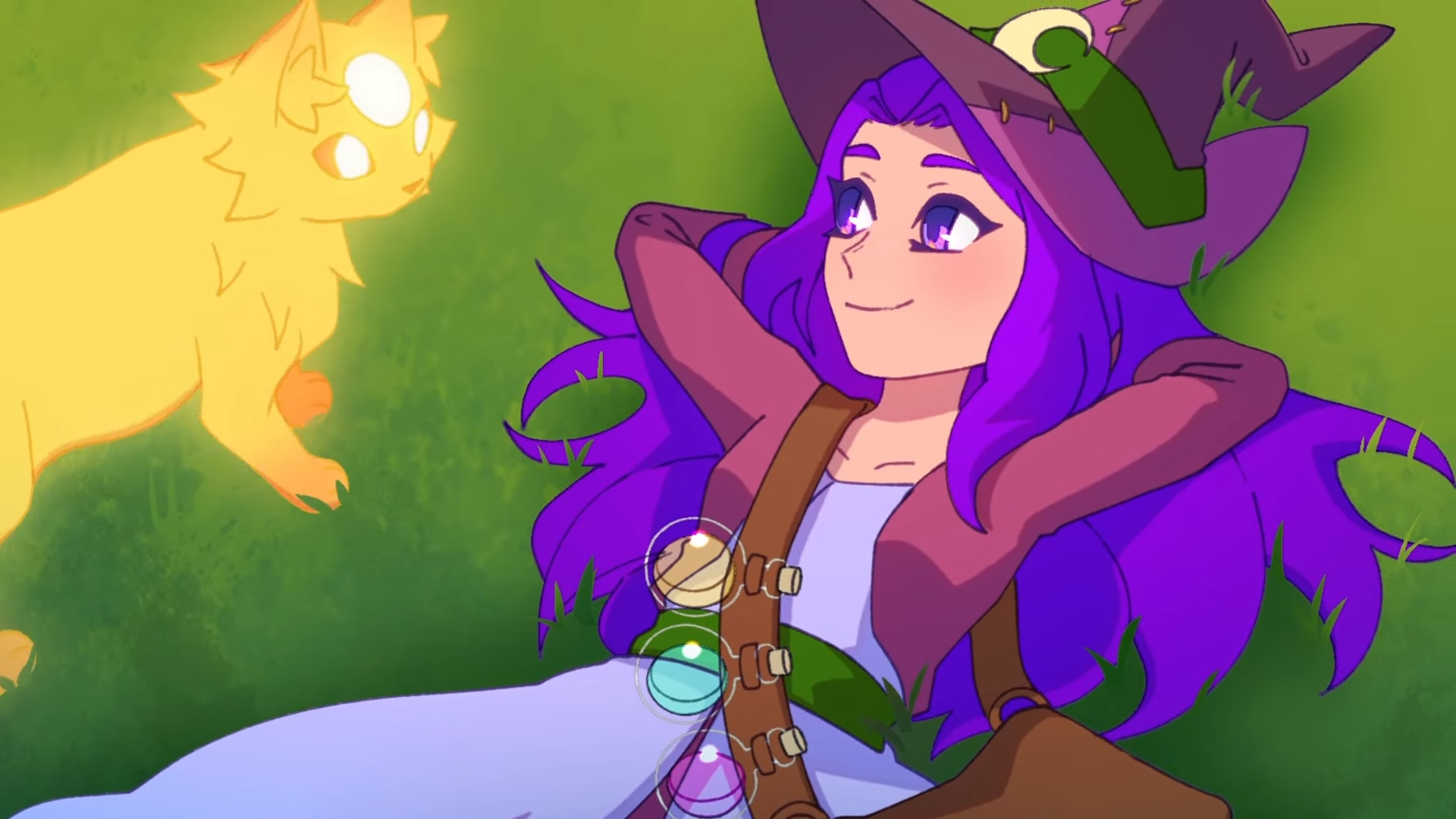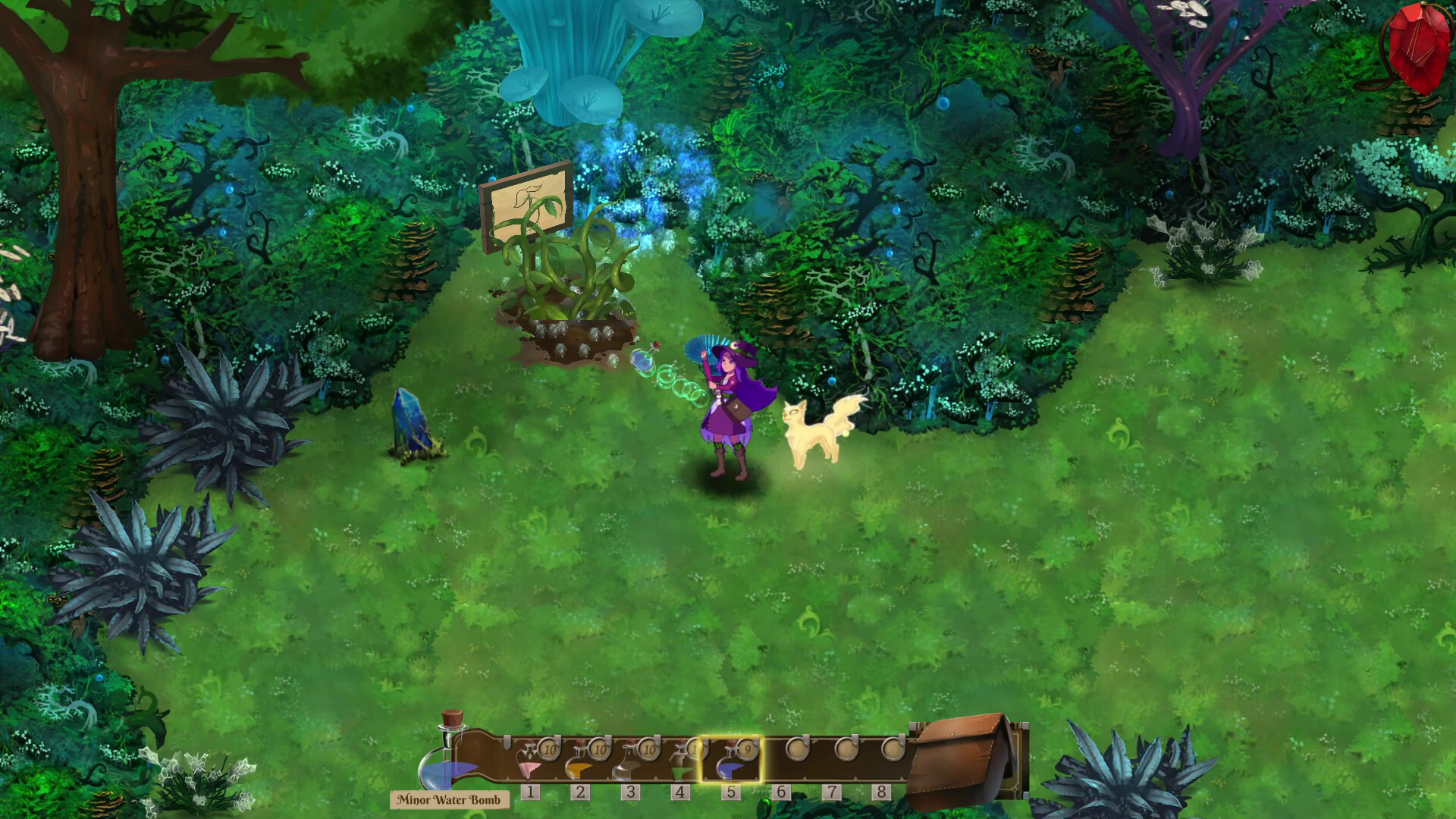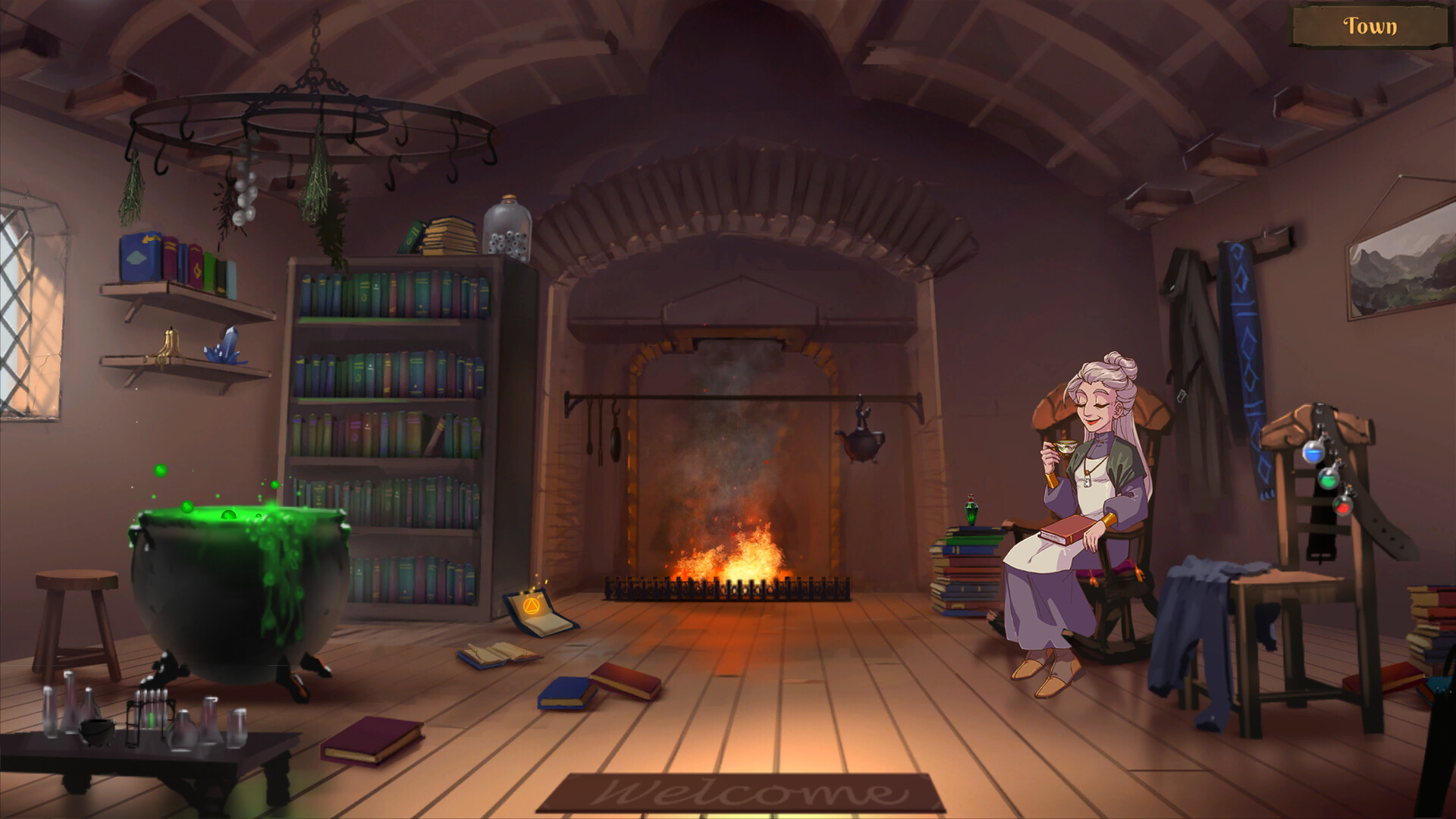After EA kicked it down Steam out of nowhere, indie crafting game finds success despite being "a terrible idea for a profit-generating game" according to its own dev
Interview | Potions: A Curious Tale is out of the red despite unforeseen launch struggles

When Renee Gittins of indie studio Stumbling Cat finally released Potions: A Curious Tale on Steam after 10 years of tumultuous development and a carefully timed launch plan, it was almost instantly knocked down and out of the storefront's feeds, vital visibility tools for indie developers especially, by a surprise flood of re-released Command & Conquer games from EA.
Potions wasn't the only game affected, but Gittins was understandably gutted at the time. "I was feeling really bad in that moment," she says in an interview with GamesRadar+. "I've mostly recovered from that. I'm still getting a lot of harassment, I thought that that would die down. But anytime I post additional content, I've been getting dozens of really nasty messages and comments, but I'm hoping that over the following weeks and months, they will lose interest."
A few weeks from launch, Potions has bounced back and found its niche, even if it is, as Gittins puts it, "a terrible idea for a profit-generating game." At the time of writing, it's sitting at 264 user reviews on Steam with a 90% positive score. Gittins acknowledges that "it has gotten a lot of dislike too," but Potions: A Curious Tale has been received well enough to put in the black.
As of late March, it had sold "just under 12,000 copies," which was enough to make up its sub-$100,000 budget, including Gittins' personal investment into the project, which was around 60% of the total funding. This would be separate from the spent Kickstarter funding that partly acted as a sort of early pre-order base (with remaining backer rewards planned to be sent out soon) and helped Gittins bring in contractors to help the game along while she juggled other jobs, like several years as executive director at the International Game Developers Association.
Some of the revenue will be re-invested into improving some of the game's rougher art assets, others can be put toward console ports, and eventually some may make its way back to Gittins, who hadn't "compensated myself a single cent from any of this yet" at the time of the interview.
"I did not make this game for profit," she says. "This is a terrible idea for a profit-generating game. I made this game because it's a game that I wanted to have when I was 12. And because I thought it'd be nice to bring into the world. Eventually I do expect to see some level of funds coming back to me, but we're talking about dollars on the hour of time spent."
"In terms of sales, on the day where I made my social media posts, International Women's Day, my sales numbers were 30% of what I predicted," she says. "And now they're 40% higher than what I predicted. I've definitely seen growth through the coverage around the situation and the game's launch. I know that I'm not the only developer affected, there certainly were other developers who were impacted by this release and other similar situations."
Sign up to the GamesRadar+ Newsletter
Weekly digests, tales from the communities you love, and more
"A large part of that is people being supportive," she continues. "And the other part of that is it got enough attention to sort of awaken Steam's algorithms." Gittins reasons that Steam feed placement is especially important to games in genres like Potions: A Curious Tale because the "less hardcore" players likely to play it also likely "aren't going to be as tuned into game news and other social media channels" to discover games otherwise.

The game was fortunate enough to find the right audience, and Gittins says that's partly because it pivoted to a more kid-friendly design than she originally envisioned. She initially thought The Legend of Zelda fans, often 15 - 35-year-old men, might be the main demographic for Potions, but through early gaming shows and playtests, found that women and especially young girls were enamored with the game. It's not a kids game, and it does have a sizable audience of 30-something women, but it is decidedly kid-friendly, which worked in its favor.
Features and particularly the writing weren't dumbed down – "I think it is better to bring them up and introduce them to more advanced vocabulary," Gittins says of potential young players – but plausible points of frustration and punishment were reduced or simplified.

"There was a little 8 or 9-year-old girl who came up to the booth dressed as a witch already and just pointed at the trailer and looked at her mom and said, 'Mom, look, it's me.' And that was adorable.
"A couple of parents came up to me," she continues. "And they said that their 8-year-old daughter was there, and she was glued looking at the screen. They said that she had been bullied in her second grade class for liking Minecraft and that it meant the world to her and the world to them to just have, you know, have me there as a game developer and have the game there with a young girl as the main character, because it helped validate her interest, right? She was told that games weren't for girls, and she was able to see right there that there was a game for girls by a girl with a girl.
"That's when I really realized that my most passionate audience is going to be women and particularly young women. So I ensured that, you know, I was aiming for that 'E for Everyone' rating. I don't have an official ESRB rating, but I imagine it would be E10 because there is technically a reference to alcohol."
It's been a difficult but rewarding process for Gittins, who says she'd like to better balance game dev and other work going forward: "Most of my time I'd like to spend towards smaller indie games, much smaller than the super story-heavy, content-heavy game of Potions. I'm considering making a party game next, for example. But I'd like to give Potions all the time and attention it needs first."
Despite concerns in a rough year for indie games, publisher Devolver Digital says its latest game has "exceeded" expectations and "is well on its way to success."

Austin has been a game journalist for 12 years, having freelanced for the likes of PC Gamer, Eurogamer, IGN, Sports Illustrated, and more while finishing his journalism degree. He's been with GamesRadar+ since 2019. They've yet to realize his position is a cover for his career-spanning Destiny column, and he's kept the ruse going with a lot of news and the occasional feature, all while playing as many roguelikes as possible.


